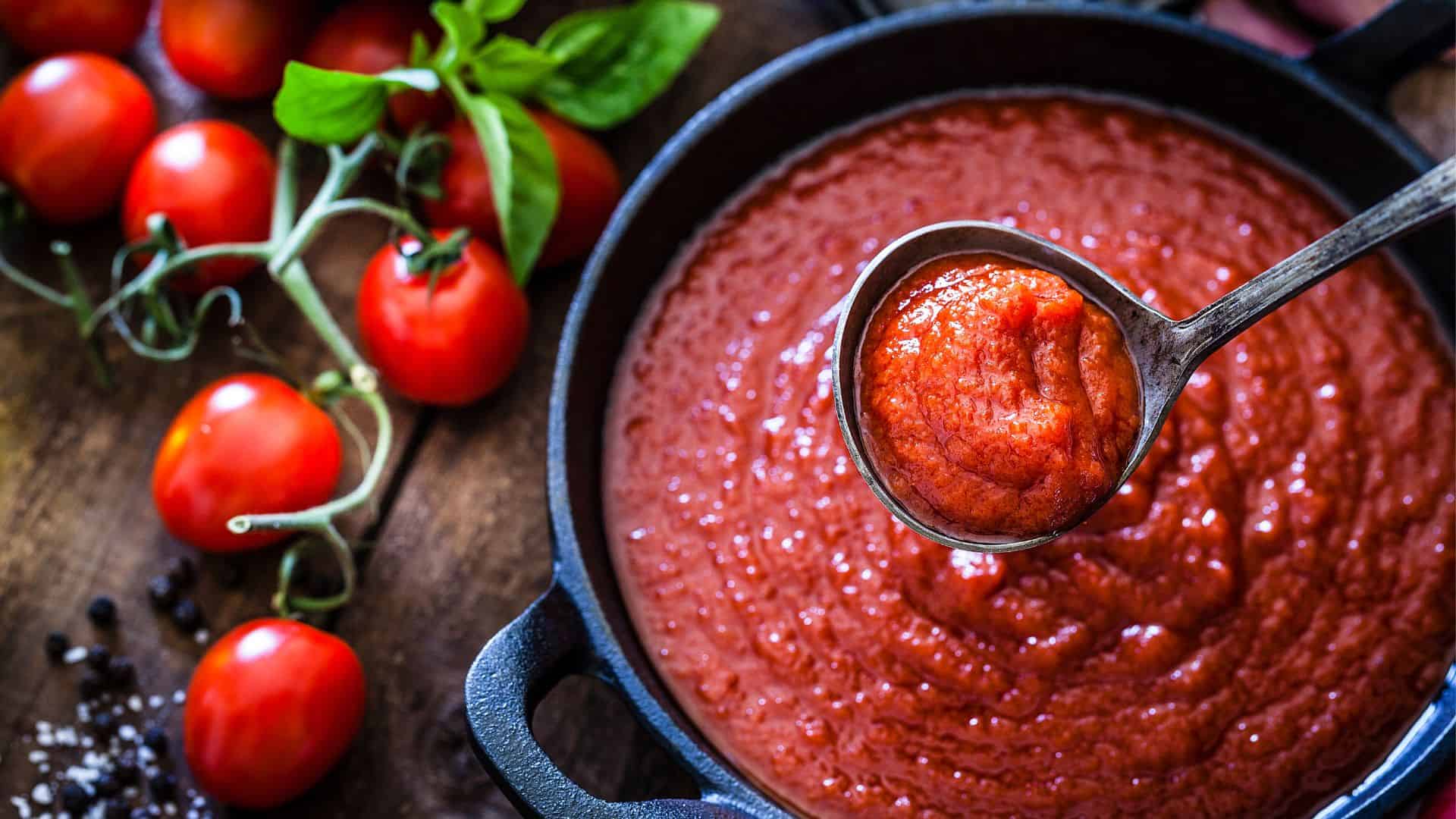My Useful Tips On How To Make Tomato Sauce Less Acidic

Have you ever had your mouth pucker up from a too-tangy tomato sauce? Don’t worry—you’re not alone! Luckily, there are a few tricks that experts use to help balance the acidity. These culinary secrets will transform your sauce into a perfectly balanced masterpiece. Now, you can say goodbye to overly acidic sauces forever.

Adding a tiny amount of sugar to your tomato sauce is a tried and true way to neutralize acidity. Add a little at a time, and taste to your preference. Sugar helps balance the tartness of the tomatoes without significantly altering the sauce’s flavor profile. Remember that a little bit goes a long way! You won’t need much sugar to combat the tart tomatoes.
Baking soda helps control the acidity in tomato sauce by restoring the pH balance. Adding even just a small amount can help. Add a few pinches, stir the sauce well, and taste it to ensure it doesn’t become too bland or soapy. Make sure you sift the baking soda before adding it to the sauce so you do not end up with baking soda clumps.
The carrot will release its natural sugars as it cooks, reducing the sauce’s acidity. Plus, it’s naturally sweet and adds a subtle layer of flavor and nutrition to your dish. Grate or finely chop a carrot and add it to the sauce while it’s cooking. You can also just throw a whole carrot or two into the pot, let the sauce simmer, then remove the carrot at the end. You will get the flavor without any mysterious carrot pieces leftover in your sauce.
Dairy products like cream or butter can help mellow the acidity of tomato sauce. The fat in these ingredients smooths out the acidic edges, making the sauce richer and more palatable. Add butter or heavy cream and simmer for a silky, less acidic sauce. Make sure to end these ingredients at the end, whisking them in as your final step.
Simmering your tomato sauce for a longer period can also reduce its acidity. Extended cooking times allow the flavors to meld together and the acidity to diminish naturally. The natural sugars in the tomatoes will come out the longer the fruit simmers. Make sure to cook your sauce over low heat to prevent burning and to develop a deeper, more complex flavor profile.
Onions add natural sweetness and can help balance the acidity in tomato sauce. Sauté finely chopped onions until they are caramelized, and add them to your sauce. You can even start making your sauce by browning onions in the pot as the first step. The caramelization process brings out the sweetness in the onions, which helps counteract the acidity of the tomatoes.

Canned tomatoes often have a higher acidity compared to fresh tomatoes. Whenever possible, use fresh, ripe tomatoes for your sauce. They are less acidic and offer a fresher, more vibrant flavor. You may also notice that freshness elevates your sauce if you use fresh tomatoes.
Sweet bell peppers can add a natural sweetness to your sauce that can neutralize the acidity. Finely chop or puree the peppers and add them to your sauce. You can even caramelize the peppers in some olive oil as the first step to making your sauce. They will reduce acidity and contribute to a richer, more complex flavor.
A small amount of red or white wine can ease your tomato sauce’s acidity while adding depth and complexity. Be sure to cook the sauce long enough to evaporate the alcohol, leaving only the enhanced flavor behind. Any type of red wine will work, from pinot noir to cabernet sauvignon. Get a nice bottle so you can have a glass along with your meal! Tomato sauce and wine are a perfect match!
Adding a peeled potato to your sauce while it’s cooking can absorb some of the acidity. Once the sauce is done, you can remove the potato before serving. This method helps to reduce acidity without altering the sauce’s flavor. It’s a handy trick that can make a noticeable difference.
Tomato paste is more concentrated than fresh or canned tomatoes, so consider that when considering acidity. Combine tomato paste with other ingredients I’ve mentioned, like carrots or onions, to balance out its intense flavor and acidity. Tomato paste also helps to thicken the sauce, adding tons of flavor along with a nice, smooth consistency. A little bit of canned tomato paste will have a huge impact on your sauce. You won’t need very much to notice a difference in the flavor!






